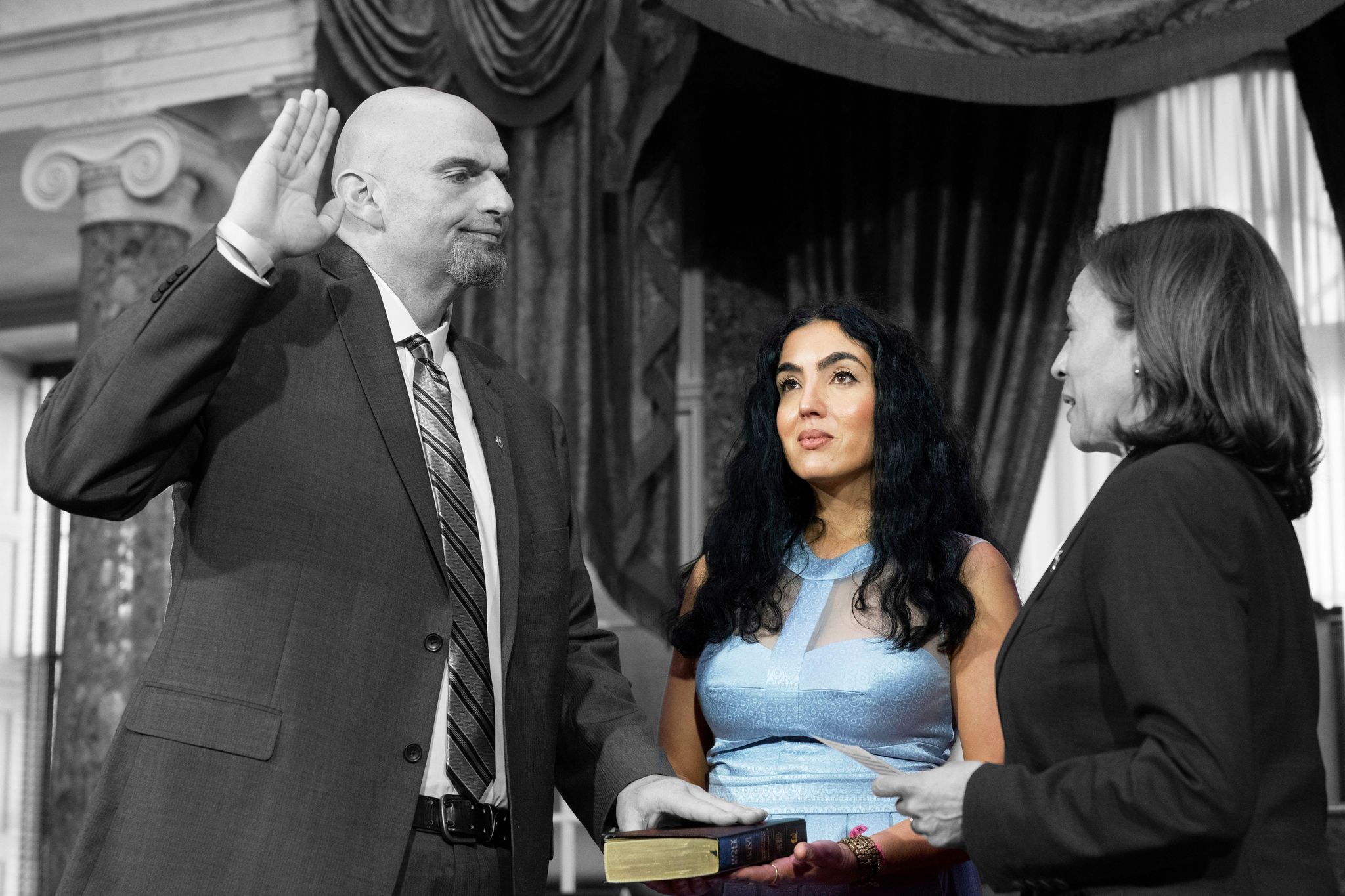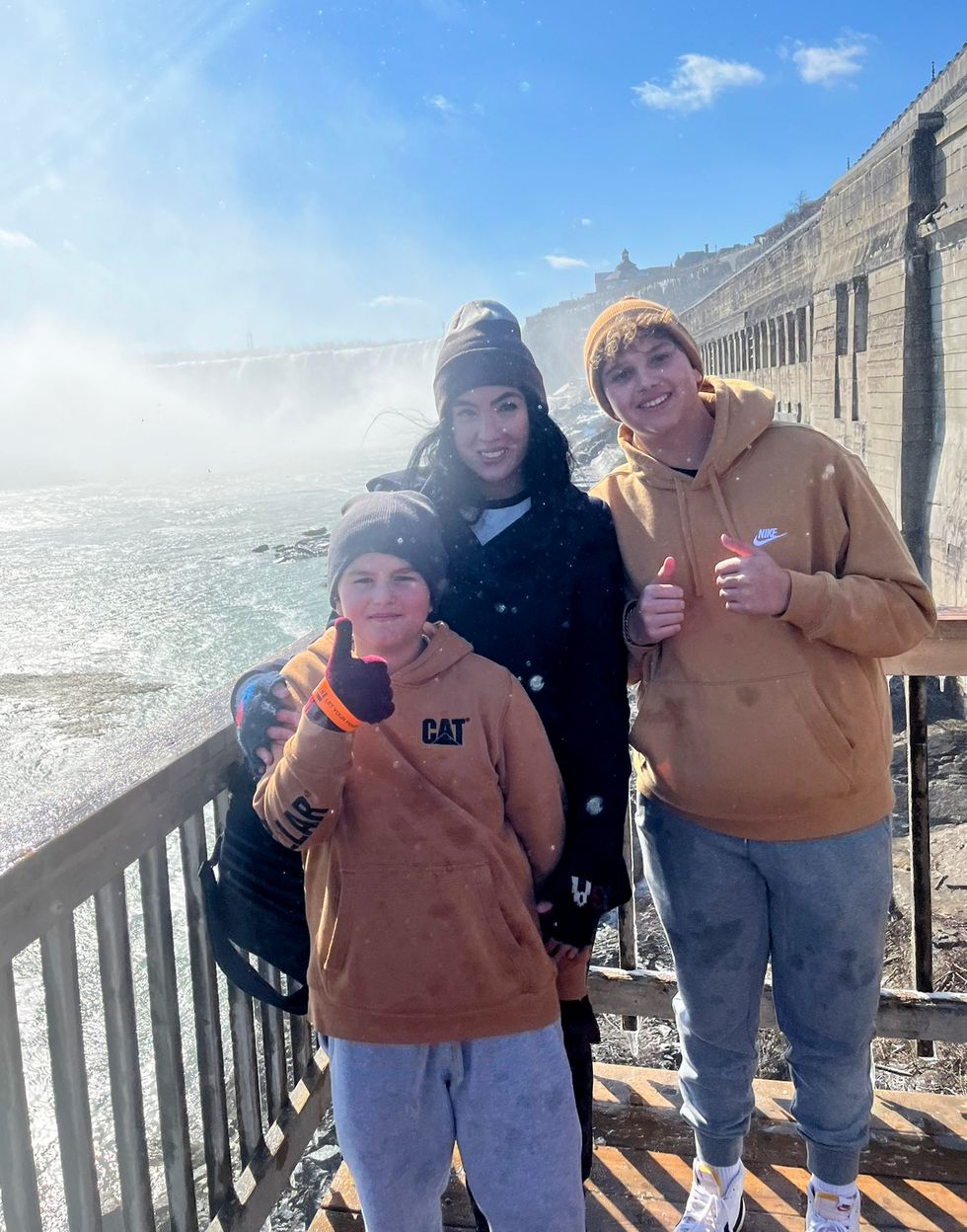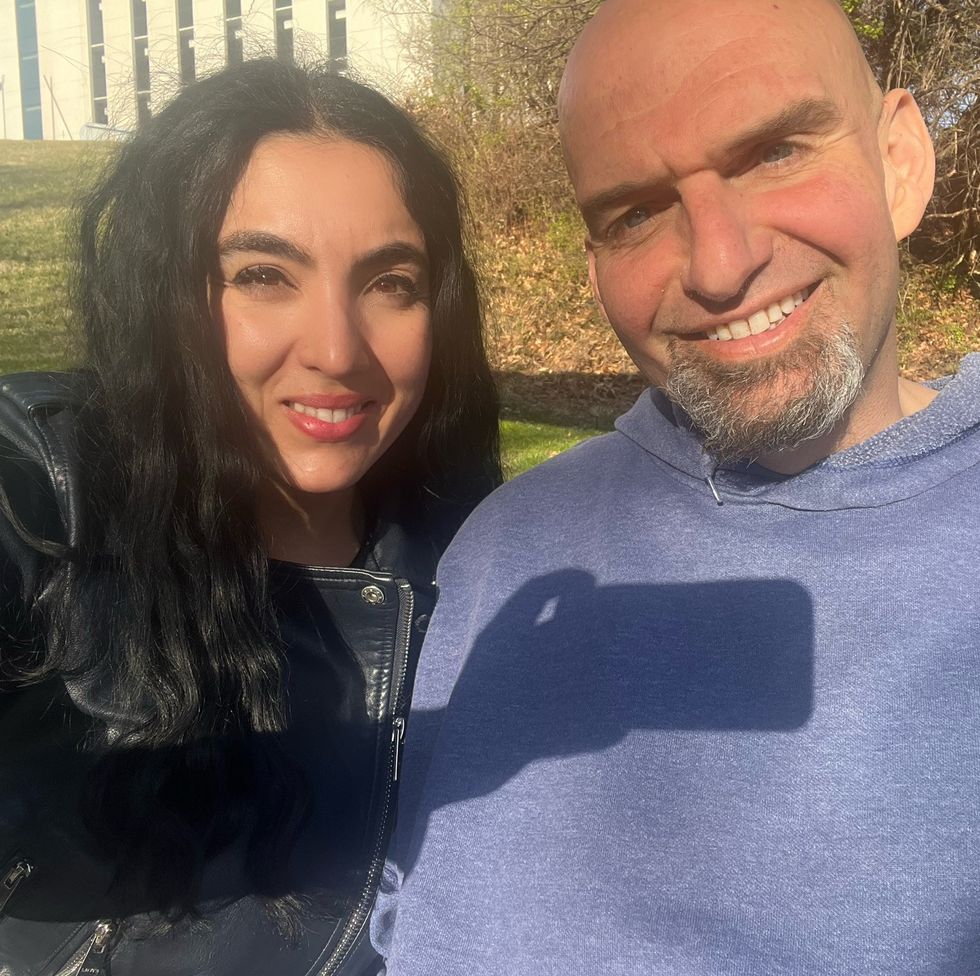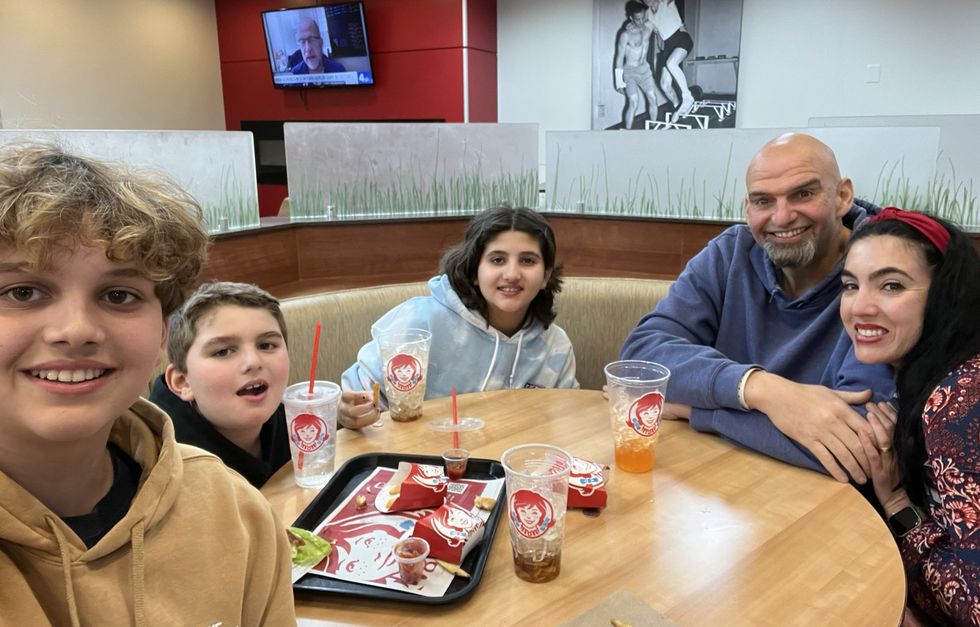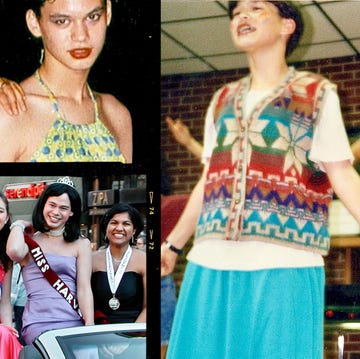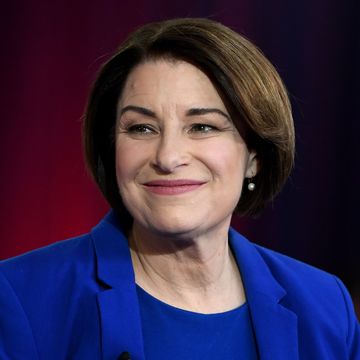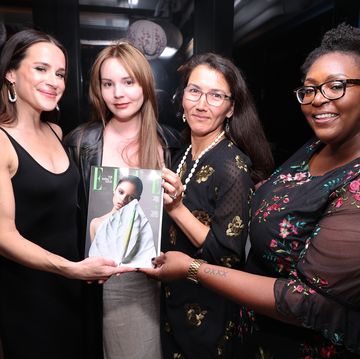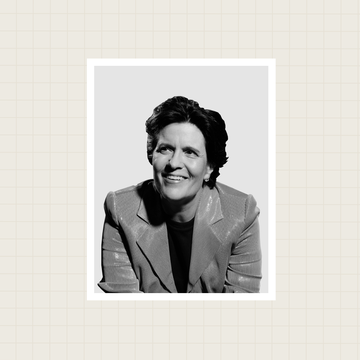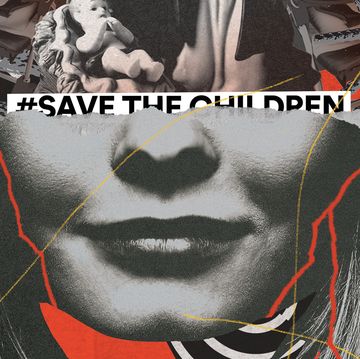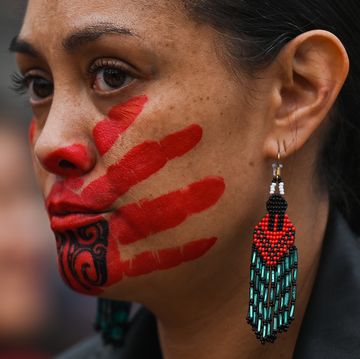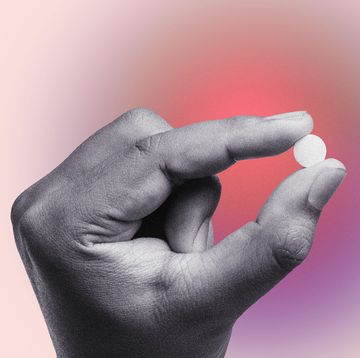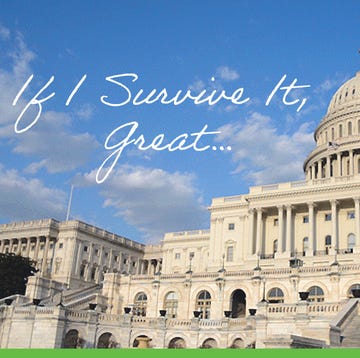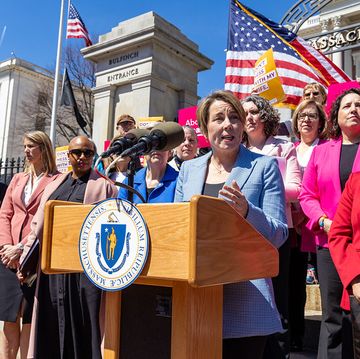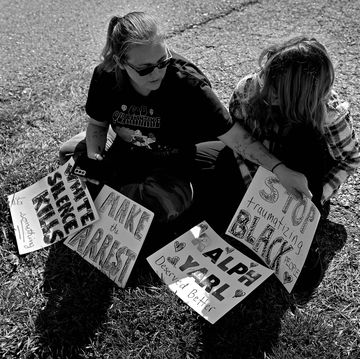Politics can require living the worst moments of your life in public.
About a month ago, my husband John checked into Walter Reed to seek treatment for clinical depression. In an instant, our world—already closely monitored, highly scrutinized, and heavily trolled by right-wing extremists—exploded.
Media trucks circled our front yard. Our kids were home from school, hurting. So I did the first thing I could think to do: Packed them in the car and drove.
On the banks of Niagara Falls, we talked about flexibility, open hearts, and open minds. We talked about how joy, love, and fun can—and must—coexist with pain and heartbreak. We talked about doing scary things while remaining gentle with ourselves and with each other. We also talked about how incredibly brave their father’s actions were.
I’m so glad we had that time together to process this difficult moment as a family. Especially because, while we didn’t know it yet, another storm was brewing.
From the moment John shared his news, vicious attacks started pouring in. John suffered a stroke during his Senate campaign, so I already knew how cruel people could be about judging someone’s health and using it as a weapon. But I’ll admit, I was surprised to find that this time the vast majority of the harassment wasn’t directed toward John—but at me.
On social media, people accused me of kidnapping the kids and running away to Canada. They promoted conspiracy theories claiming I was an ambitious, power hungry wife, secretly plotting to fill his Senate seat. It was all so wildly preposterous.
Soon enough, what started on the extreme fringe worked its way into the right-wing media: Candace Owens called me an “absolute monster” on Fox News. A Washington Examiner column claimed I was failing my husband. Threats against me and my family multiplied in frequency, volume, and severity, including active threats of harm.
To say these attacks frighten me and my children would be a grave understatement. But at the same time, I’ve been dealing with a version of this for several years now. As soon as John’s political profile began to grow, I started receiving hate mail—ten times more than John ever got himself.
Back then, he was the mayor of Braddock, a small town outside of Pittsburgh that we still call home today. I hadn’t sought an office of any kind, and I had never wanted to be in the public eye; in fact, that’s the last thing I’d want. While I’ve dedicated my professional life to non-profit work and community support, pursuing change as a politician is something I would never do. I’ve always preferred serving others as a private citizen and have no interest in the politicking of policy.
But the politically-motivated attacks continue to flood my life. I’ve been called a “mail-order bride,” and some have even asked John: “Where did you buy her?” They told me to go back to my country and criticized my immigration journey from Brazil, even after receiving my green card in 2004 and official U.S. citizenship in 2009. They have even criticized my appearance, often going after my eyebrows and hair.
From our days in Braddock to our most recent journey to Washington, D.C., attacks on my character and physical appearance have always been about control.
They’re the same attacks leveled at Meghan Markle, Jada Pinkett Smith, and Jill Biden—my apparent competitors for “worst wife in America.” They echo the dehumanizing bullying that women like Hillary Clinton and Michelle Obama have faced for decades.
And they leave women shouldering a heavier side of the blame, no matter what we do.
To hear my critics tell it, it’s my fault that John ran for Senate. It’s my fault that he won. It’s my fault that he had a stroke, and it’s my fault that he’s depressed. And somehow, at the same time, I’m just a wife who should stay at home and out of the public eye.
As much as I try to block them out, these attacks are really exhausting. Some days I just feel drained and have to let it out in a good cry. Even more, I worry about the millions of women who hear these attacks on TV and social media and then internalize these myths in their own lives.
In those moments, I try to focus on what’s important: my family, my community. I remind myself that I can only value the opinions of those who are willing to treat me with basic dignity and respect.
And here’s the thing—to paraphrase Connie Schultz, who wrote about her experience being reduced to a politician’s spouse in her memoir, ...and His Lovely Wife: I am not my husband’s career.
A healthy, loving relationship is about supporting your partner’s dreams, not controlling them. I would never stop John from pursuing an ideal, just like he could never stop me—even if he wasn’t crazy about the idea at first, like when I told him I was going to be running into fires.
Hate is a lot like fire. If you don’t control it, it spreads.
For every baseless allegation, there are millions of young women being taught to internalize blame for everything—even in the worst moments of their lives. This misogyny affects everything they do. It spreads in the classroom, at the dinner table, and of course, on social media.
It’s no wonder, then, that nearly 60 percent of teen girls report feeling persistently sad and hopeless, a record high mental health crisis for young women across the nation. Perhaps they’ve already been blamed for being too smart or too funny or too sexy or too loud or too quiet, too ambitious, too “cold,” too physically unideal. Perhaps they’ve been unfairly blamed for the actions of the men in their lives.
That’s not the future I want for my daughter. I want her to feel fiercely independent and free. Like a full person with the world at her fingertips, unlimited by misogyny and hate.
Maybe that sounds too idealistic. You wouldn’t be the first person to say so. When our family first started getting national attention, a lot of people told me I’d have to grow a thicker skin. They said I should toughen up.
Well, I don’t want a thicker skin. I like my big feelings; the ability to feel so deeply is beautiful. My empathy drives my career and provides me with purpose and hope.
When we demand that women steel themselves in the face of unending attacks, we teach the next generation to normalize and accept harassment. In the end, it only puts the blame on women once again; telling us to toughen up or ignore it reasserts the idea that we need to accept when we’re treated poorly, instead of questioning why society permits abusive behavior. It makes us feel like we’re the problem for feeling pain when we’re held over a live fire.
Try as we may, we can’t fight fire with fire. We can’t out-hate a force set on denying our essential humanity. And even if I could, I wouldn’t want to carry that torch.
What we can do is continue to live with love every day. To show gentleness and compassion to everyone, including ourselves. To reject their venom wholesale, and be wholly, independently who we’re meant to and want to be.
Because we are enough—exactly as we are.
Gisele Barreto Fetterman is an access and equity advocate, a hugger, and the former Second Lady of Pennsylvania. Founder of Free Store 15104, where surplus and donated goods are received and redistributed to neighbors in need. FS15104 aims to eradicate food and clothing insecurity and has inspired 13 spin off locations and the birth of 412 Food Rescue. Gisele is the co-founder of 412FR, a community-wide effort to end hunger and reduce food waste. 412FR has rescued tens of millions of pounds of food. She is co-founder of For Good PGH, a non-profit that works to advocate inclusion and inspire kindness. Its first initiative, Hello Hijab, has received both national and international praise. Gisele was born in Brazil and emigrated as a child to the US, living as an undocumented immigrant for over a decade. Gisele is a Forty under 40 honoree, a Tedx Speaker, a Jefferson Awards recipient, and selected by NBC Universal as an Erase the Hate Change Maker. She is a mother of three and of beloved rescue pups Levi and Artie.
